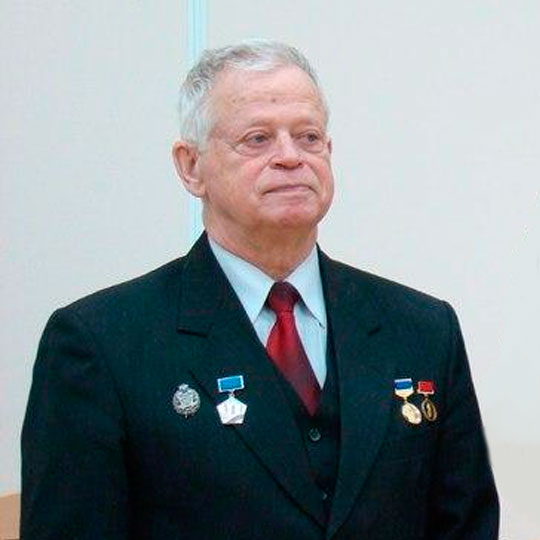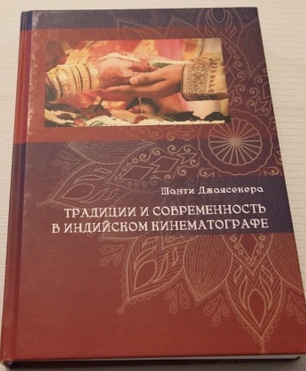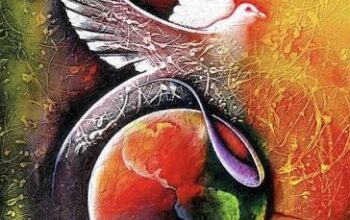REVIEW OF THE SCIENTIFIC REPRESENTATIVE SUBETTO ALEXANDER IVANOVICH ON THE BOOK “TRADITIONS AND MODERNITY IN INDIAN CINEMATOGRAPH” (the last quarter of the twentieth century – present) by Shanti Jayasekera / Santi Jayasekera – Spb.: Binding Centre, 2024; Paris: IUHAC – OXFORD PRESS, 2024. – 368 p., ill.
The book by Santi Jayasekera – the founder and permanent head of the International University for Fundamental Learning (IUFL 1998), and since 2007 of the International University Higher Academic Council (IUHAC) as an association of world scholars, President of the Inter – University Higher Academic Council (IUHAC) in Paris.
Santi Jayasekera graduated from the Directing Department of the St. Petersburg State Institute of Cinema and Television and completed his postgraduate studies at the Gerasimov All-Russian State Institute of Cinematography (VGIK). Santi Jayasekera is the President of the World Academy of Cinematography, Paris, France and the editor-in-chief of three scientific journals: “Spirit of Time”, “World Scientists” and “Les Scientifiques Francais”. The book presents in some detail the history and current state of Indian cinema as part of the great culture of India, which is the birthplace of the greatest discoveries that have become the heritage of all mankind and determined its progressive development, material and spiritual, for many centuries to come.
The book consists of an introduction, three chapters, a conclusion and a bibliography – a list of 178 sources. Indian cinema is the flesh of the ancient, planetary and cosmic scale, culture of all the peoples of India, which has gathered the experience of the history of cognition and comprehension of existence on Earth of the Indian society. The liberation of India from colonial dependence and cultural-British dictate gave birth to a whole Era of Renaissance of Indian Culture on a completely new basis with an appeal to the powerful force of Love, Goodness and Service to Truth. This Renaissance Era also reflected the craving of man in India for socialism and justice. Traditional family and domestic relations in India are very difficult for Europeans and Americans to understand. There is a special manner of behaviour in India: handshakes are not accepted, public displays of affection are forbidden, restraint in behaviour and expression of emotions is encouraged. Hindus are always distinguished by their careful and caring attitude to animals, and all this is reflected in Indian cinema. Indian cinema wisely and effectively responds to the most urgent spiritual needs of modern mankind, its philosophical and moral quests, to develop a norm and model of different levels of social individual behaviour of everyone.
Indian cinema is the most popular in the world both in terms of the number of films produced (1,000 annually) and the number of viewers (over 1.5 billion people), and Indian cinema has a special intellectual impact that is vital and important in our troubled and troubling times, fraught with sharp collisions and tense situations. Indian cinema excludes violence as a driving force of development, the characters outwardly and inwardly resist it, neutralising it with their inactive resistance, interaction, which in principle is possible everywhere and always. The interaction of different origins, as the most important structural principle that creatively defines the filmmakers and vitally guides the viewer, gives true originality to Indian cinema, which is steadily and comprehensively developing and improving. We wish him every success and thank him for creating and publishing a magnificent cultural monograph published in the cultural capital of the world, St. Petersburg, Santi Jayasekera, the founder and permanent head of IUFO and MVUS, as well as his deputy – scientific editor Andrey Nikolaevich Jesuitov, Doctor of Philological Sciences, Professor, Full Professor of Oxford, Grand Doctor of Philosophy in the field of “Philosophy of Interaction”, Academician.
The book ‘Tradition and Modernity in Indian Cinema’ is splendidly illustrated and undoubtedly – it is already a whole cultural phenomenon of our times. Let us wish Mahatma Shanti’s new book further success in its movement among the readers of Russia and all over the world!

Scientific reviewer,
Alexander Ivanovich Subetto
Professor of the Department of Social Sciences of the North-West Institute of Management – Branch of the Russian Presidential Academy of National Economy and Public Administration, Doctor of Philosophy, Doctor of Economics, Candidate of Technical Sciences, Professor, Honoured Worker of Science of the Russian Federation, Laureate of the Prize of the Government of the Russian Federation, Professor of the Department of History of Religion and Theology of the Institute of History and Social Sciences of the Herzen State Pedagogical University, Honorary Professor of the Yaroslav the Wise Novgorod State University, Honorary President of the Noosphere Academy of Sciences, First Vice-President of the Petrovskaya Academy of Sciences and Arts, Chairman of the Philosophy of Science and Public Administration of the Russian Federation.
01 May 2024.



